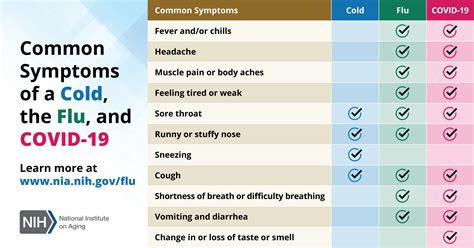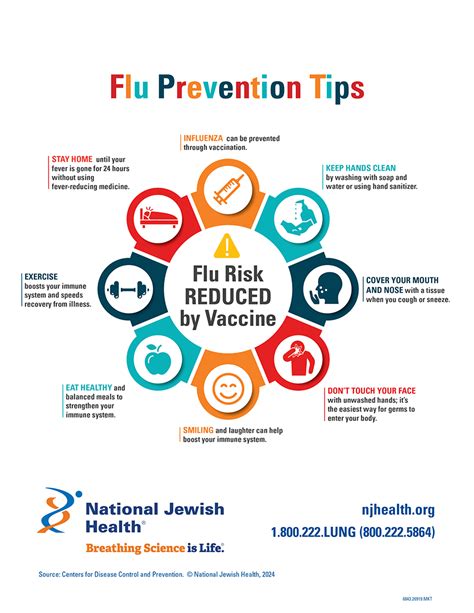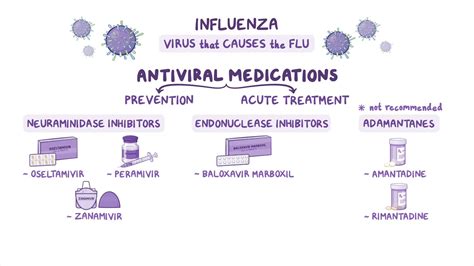Intro
Stay ahead of the 2024 flu season with our expert guide. Learn about the latest flu symptoms, including fever, cough, and body aches, and understand the differences between influenza A and B. Discover how to prevent the flu, recognize mild vs severe symptoms, and find out what to expect from this years flu season.
As the winter months approach, many of us are bracing ourselves for the inevitable flu season. The flu, also known as influenza, is a contagious respiratory illness that can cause a range of symptoms, from mild to severe. In this article, we'll take a closer look at what to expect from the 2024 flu season, including the most common symptoms, how to prevent the flu, and what to do if you contract the illness.
The flu is a highly contagious disease that affects millions of people worldwide each year. According to the Centers for Disease Control and Prevention (CDC), the flu season typically runs from October to May, with the peak season usually occurring between December and February. The flu is caused by the influenza virus, which can be spread through the air when an infected person talks, coughs, or sneezes, as well as through close contact with an infected person.

Common Flu Symptoms
So, what can you expect if you contract the flu? The symptoms of the flu can vary from person to person, but common symptoms include:
- Fever: A high temperature, usually over 102°F (39°C)
- Chills: Feeling cold, even if your body temperature is normal
- Cough: A dry, hacking cough or a productive cough that brings up mucus
- Sore throat: Pain or discomfort in the throat
- Runny or stuffy nose: Excess mucus production or congestion in the nasal passages
- Headache: A headache can range from mild to severe
- Fatigue: Feeling extremely tired or weak
- Muscle or body aches: Pain or discomfort in the muscles, back, or other parts of the body
- Diarrhea and vomiting: More common in children than adults
It's worth noting that some people may experience additional symptoms, such as sinus pressure, ear pain, or a sore mouth and throat.
Who is Most at Risk?
Certain groups of people are at a higher risk of contracting the flu and experiencing severe symptoms. These groups include:
- Older adults (65 years and older)
- Young children (under 5 years)
- Pregnant women
- People with certain chronic health conditions, such as heart disease, diabetes, or lung disease
- People with weakened immune systems, such as those with HIV/AIDS or undergoing chemotherapy
How to Prevent the Flu
While there is no surefire way to completely prevent the flu, there are several steps you can take to reduce your risk of contracting the illness:

- Get vaccinated: The flu vaccine is the most effective way to prevent the flu. The CDC recommends that everyone 6 months and older receive a flu vaccine each year.
- Practice good hygiene: Wash your hands frequently with soap and water, especially after coming into contact with someone who is sick.
- Avoid close contact: Try to avoid close contact with people who are sick, especially if you are at high risk of contracting the flu.
- Stay home: If you are sick, stay home from work or school to prevent spreading the flu to others.
- Get plenty of rest: Getting enough rest can help keep your immune system strong.
What to Do if You Contract the Flu
If you contract the flu, there are several steps you can take to help manage your symptoms and recover:
- Stay hydrated: Drink plenty of fluids, such as water, clear broths, or electrolyte-rich beverages like sports drinks.
- Rest: Get plenty of rest to help your body recover.
- Use over-the-counter medications: Over-the-counter medications like acetaminophen (Tylenol) or ibuprofen (Advil, Motrin) can help relieve symptoms like fever, headache, and body aches.
- Use a humidifier: Dry air can make your symptoms worse, so using a humidifier can help relieve congestion and cough.
Treatment Options
If you contract the flu, there are several treatment options available to help manage your symptoms and recover:

- Antiviral medications: Antiviral medications like oseltamivir (Tamiflu) or zanamivir (Relenza) can help shorten the duration and severity of the flu.
- Antibiotics: If you develop a secondary bacterial infection, such as pneumonia, your doctor may prescribe antibiotics to help clear up the infection.
When to Seek Medical Attention
While most people can recover from the flu on their own, there are certain situations where you should seek medical attention:
- If you experience severe symptoms, such as difficulty breathing, chest pain, or severe headache.
- If you are at high risk of contracting the flu and experiencing severe symptoms.
- If you experience symptoms of a secondary bacterial infection, such as pneumonia.
- If you are not getting better after 3-4 days of rest and treatment.
Conclusion
The flu can be a serious and debilitating illness, but by taking steps to prevent the flu and seeking medical attention if you contract the illness, you can reduce your risk of experiencing severe symptoms and complications. Remember to get vaccinated, practice good hygiene, and stay home if you are sick to prevent spreading the flu to others.
What is the best way to prevent the flu?
+The best way to prevent the flu is to get vaccinated. The flu vaccine is the most effective way to prevent the flu and is recommended for everyone 6 months and older.
How long does the flu last?
+The flu can last anywhere from a few days to several weeks. Most people can recover from the flu on their own within 1-2 weeks, but some people may experience severe symptoms that can last longer.
What are the most common flu symptoms?
+The most common flu symptoms include fever, chills, cough, sore throat, runny or stuffy nose, headache, fatigue, and muscle or body aches.

